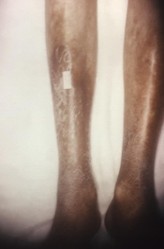Poor nutritional status in hospitalized patients may be present upon admission, or the client can develop it during the hospital course. It may happen in those who are not able to chew or swallow. Some patients will lose their appetite because of the illness. There are also interactions between certain medications to treat diseases, and these may create an imbalance in the body’s nutrients [3].
Many inpatients undergo procedures, whether major or minor surgery, or other diagnostic studies. In general, the staff will withhold food the night before in order to ensure a smooth examination or to prevent the patient from regurgitation or other gastrointestinal issues during surgery. Unless some food intake resumes shortly after the procedure, the patient becomes at risk for metabolic imbalance and malnutrition [3].




 The Reality of Aspirinon 05/24/2021
The Reality of Aspirinon 05/24/2021
 An Old Microbeon 03/31/2021
An Old Microbeon 03/31/2021
 Coronavirus and Mental Illnesson 02/14/2021
Coronavirus and Mental Illnesson 02/14/2021
 Acute Ischemic Strokeon 12/25/2020
Acute Ischemic Strokeon 12/25/2020


Comments